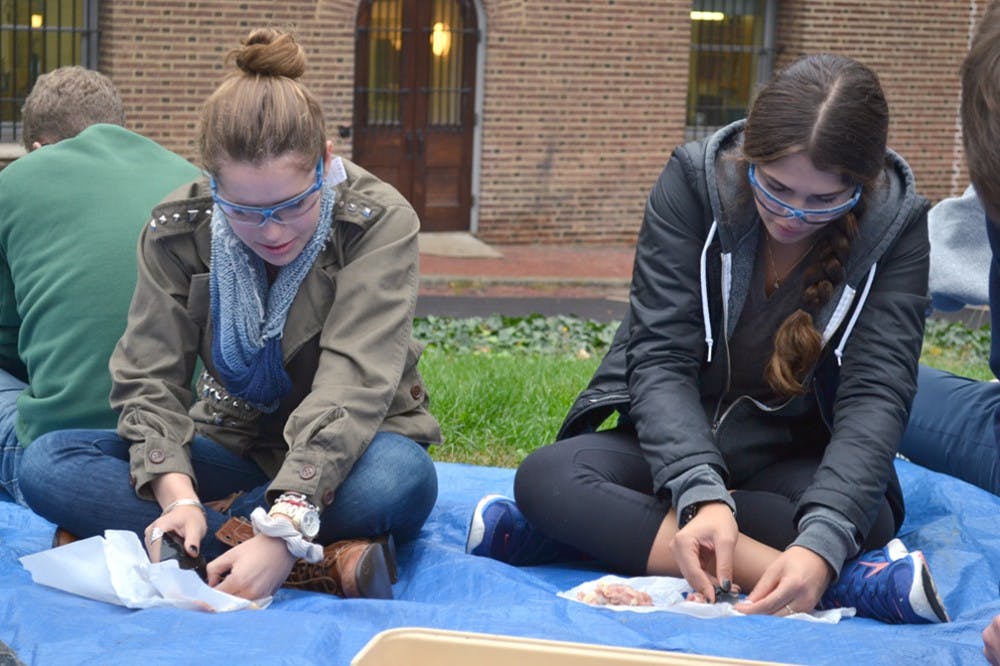
Students get their hands dirty in ANTH 148, a course that teaches the role of fire, tools and food in human history. | Courtesy of Katherine Moore
One of the first assignments under anthropology course "Food and Fire: Archaeology in the Laboratory" — ANTH 148 — is to make your own knife. Armed with antler hammers, students chip at obsidian rock to make their own tools which they then use to butcher raw meat.
This is just one of many hands-on assignments that professor Katherine Moore uses to illustrate the role of food and fire in human society. For this field work, students learn to manipulate basic technology used by archaeologists as well as equipment used at the Penn Museum for conservation.
These skills allow students to undertake a final project, which is a close analysis of an artifact from the Penn Museum’s collections. Moore said that this project is when her students get most excited.
“The thrill is the notion that ‘This is my bone pin’ or ‘This is my precious pot from my own Etruscan burial.’ For some, it’s a once-in-a-lifetime experience that they’ve been waiting for — for others, it’s something they never even thought that they would get to do.”
Moore explained that her own attraction to the field of archaeology is the physical interaction with artifacts. For this reason, students in this class pick up objects from precious textiles to human skulls.
“I have students who learned history before but had a hard time connecting to it. Sometimes having a material object in their hands can be that connection,” she said.
College freshman Justin Estreicher agreed. He chose a hammer from Neolithic Switzerland for his final project and said that it was memorable to wield the tool with the knowledge that it was held by someone 6,000 years ago.
Estreicher also said that it was difficult not to be excited when Moore was around.
“When she speaks about the material with such obvious fascination, you see that she really loves what she does and you can’t help but love it too.”
Moore, who recently received the Dean’s Award for Distinguished Teaching, makes a point to be present at every recitation. College sophomore Roger Lee said that he was initially apprehensive about touching human remains, but cultivated an interest in the artifacts when he saw Moore approach them with scientific curiosity.
Launched as a freshman seminar in 2014, this course is now open to all undergraduates and will see its biggest listing of 60 students in the fall. Moore said that the she is happy that more students are coming to the Penn Museum, but she also hopes to continue interacting with individual students as much as possible.
College senior Julia Masters advised students taking the class next semester to appreciate the opportunities that this class affords.
“Don’t be afraid to get your hands dirty and take advantage of the fact that you have swipe access to the underground of the Penn Museum," Masters said. "It’s incredible just to look at the restoration work that they do, much less to get to touch these ancient, priceless objects for yourself.”
The Daily Pennsylvanian is an independent, student-run newspaper. Please consider making a donation to support the coverage that shapes the University. Your generosity ensures a future of strong journalism at Penn.
DonatePlease note All comments are eligible for publication in The Daily Pennsylvanian.




